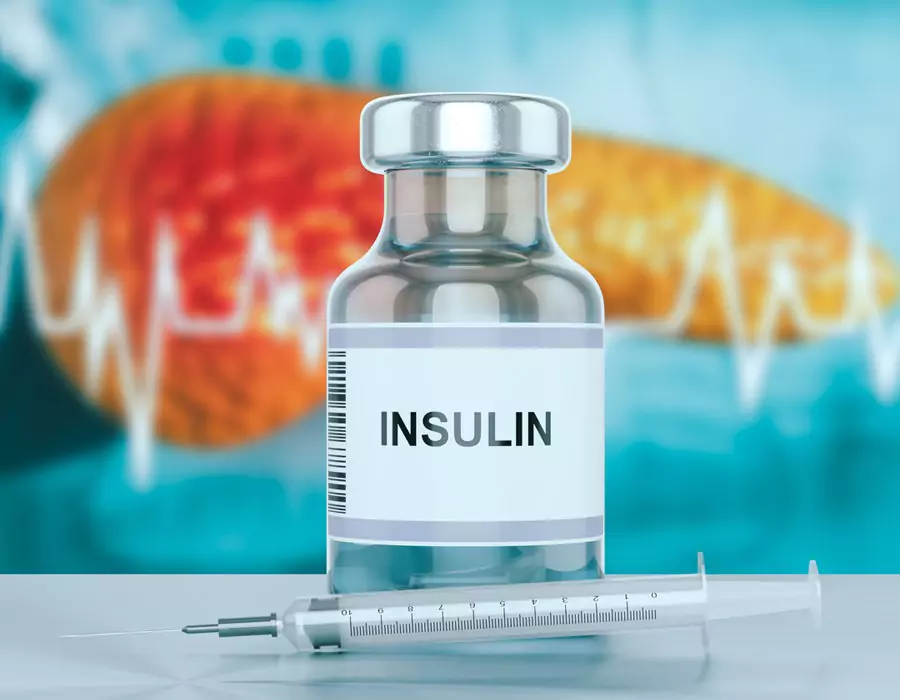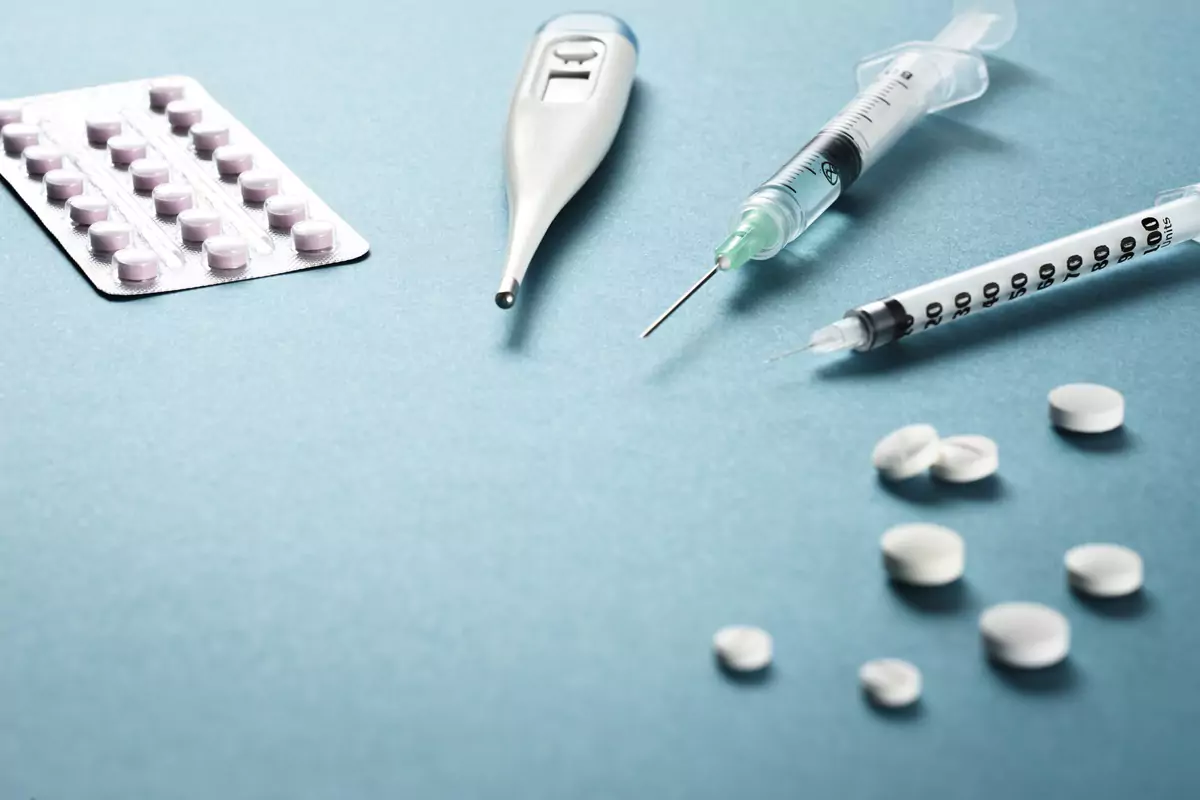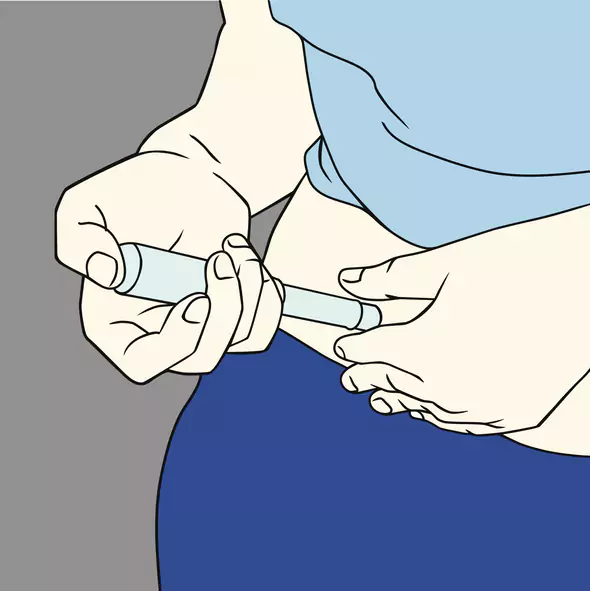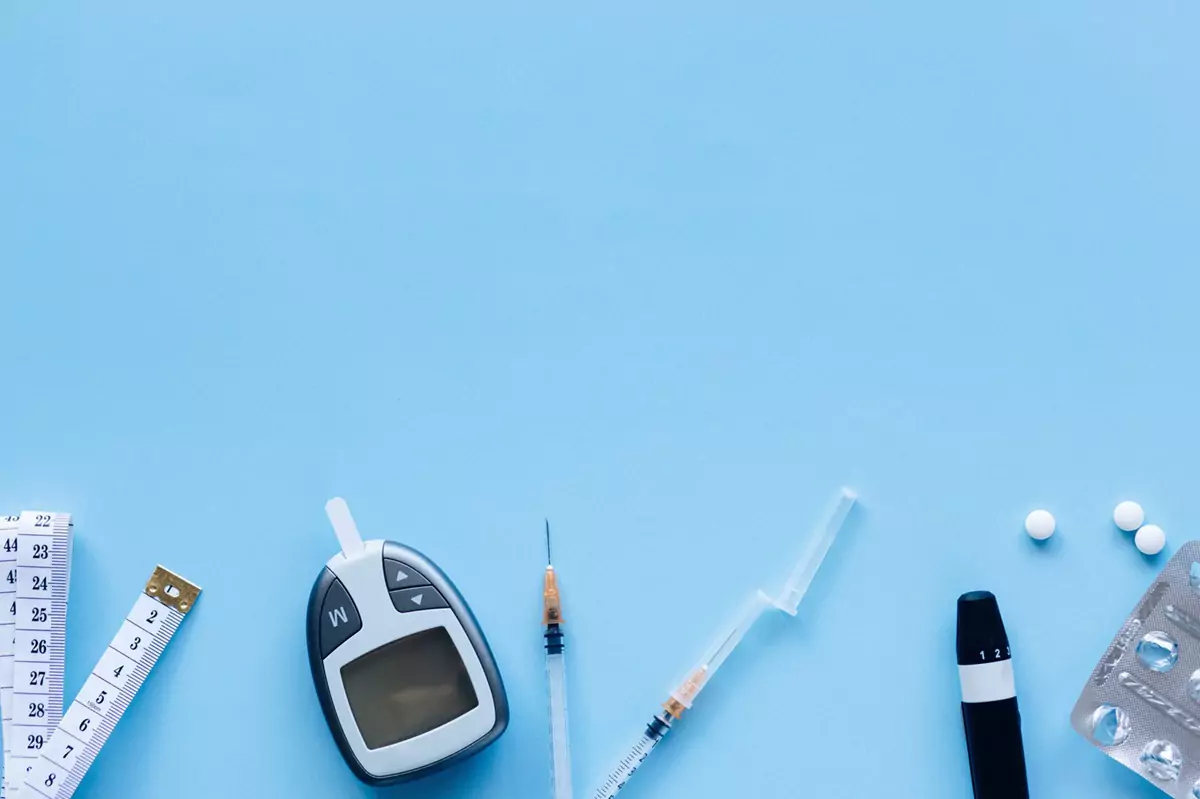
UP TO 40% OFF SITEWIDE






13 Levemir Side Effects: Common, Mild and Serious


Table of Contents
- Introduction
- What is Levemir?
- Common Side Effects
- Hypoglycemia (Low Blood Glucose)
- Vomiting
- Common Allergic Reaction
- Nausea
- Headache
- Mild Side Effects
- A Skin Rash or Itching
- Injection Site Irritation
- Weight Gain
- Fatigue or Weakness
- Flu-Like Symptoms
- Serious Side Effects
- Low Blood Sugar Levels
- Severe Allergic Reaction (Anaphylaxis)
- Low Potassium
- Frequently Asked Questions
- Can Weightloss Be a Side Effect of Levemir?
- Does Levemir cause Fatigue?
- Does Levemir cause Hair loss?
- Does Levemir cause Burping?
- Does Levemir cause Joint Pain?
- Conclusion
- About The Author
Introduction
We have previously discussed about Novolog and Humalog. But what about Levemir? In this article, we will look at the side effects that are common, mild, and serious when taking Levemir. We will discuss how to recognize them and ways to manage them. So if you’re taking Levemir, read this article to learn more about the potential side effects.
What is Levemir?
Levemir is a man-made form of insulin. It is known as analog insulin, which is used to control blood sugar levels in people with Type 1 and Type 2 diabetes. It is usually injected under the skin, usually twice a day, in combination with other diabetes medications. Levemir is a very effective long-acting insulin and helps to keep blood sugar levels in a normal range.
Levemir is a medication that is composed of protamine, zinc, and insulin detemir. It is available in both pre-filled pens and vials. When taken, the insulin detemir in Levemir interacts with proteins in the body. This helps the insulin to be released moderately over time.
This is different from other types of insulin, which have a much shorter duration of action. Levemir is used to control high blood sugar, but it is important to note that it does not cure diabetes. It is, therefore, important for people taking this medication to also follow a healthy lifestyle, including regular exercise and eating a healthy diet.
People taking Levemir should also monitor their blood sugar levels on a regular basis and contact their doctor straight away if they experience any symptoms of low blood sugar (hypoglycemia).
Common Side Effects
Levemir has a range of side effects, which can vary in severity. The most common Levemir side effects are typically mild and manageable.
Hypoglycemia (Low Blood Glucose)
One of the most common side effects of taking Levemir is hypoglycemia. This condition is caused by low blood sugar levels. Hypoglycemia can develop if blood sugar levels drop too low, and it can be mild, moderate, or severe, depending on its severity.
Symptoms of low blood sugar include dizziness, lightheadedness, confusion, disorientation, difficulty concentrating, sweating, palpitations, and shakiness. Moderate hypoglycemia can cause the same symptoms as mild hypoglycemia, but they will be worse and longer lasting.
Severe low blood sugar can be dangerous, as it can lead to coma or even death. If you experience any of these symptoms, seek medical attention right away. It’s important for diabetics to be aware of the risks associated with taking Levemir, as hypoglycemia can be a potentially life-threatening condition.
Your doctor can work with you to adjust your dose and monitor your blood sugar levels to ensure that you are receiving the correct amount of medication without experiencing any dangerous side effects from Levemir.
Hypoglycemia is one of the most common Levemir side effects, and it can be dangerous if not treated properly. Be sure to talk to your doctor if you’re taking Levemir and experience any unusual symptoms, as they can help determine the cause and develop a plan to help you manage your symptoms.
Vomiting
Vomiting is one of the common side effects of Levemir. This occurs when someone taking Levemir experiences nausea, which causes them to vomit. Vomiting is often the body’s response to the drug and can be a sign of an allergic reaction or an underlying condition.
If you experience vomiting while taking Levemir, it is important to seek medical attention right away. Similarly, if vomiting is accompanied by fever or abdominal pain, it is important to seek medical attention immediately. This is because these symptoms may be caused by an infection or another underlying condition.
Common Allergic Reaction
One of the common Levemir side effects is allergic reactions, which can range from mild to severe. An allergic reaction occurs when the body’s immune system reacts to a drug or other foreign substance. Symptoms of mild to moderate allergic reactions can include:
Itching Rash Hives Swelling Difficulty breathing Severe allergic reactions can include anaphylaxis, a potentially life-threatening reaction with symptoms such as fainting, dizziness, lightheadedness, and swelling of the throat or tongue.
It is important to note that while any drug can cause an allergic reaction, the injectable formulation of Levemir is more likely to cause an allergic reaction. This is because the drug is administered differently and the body may respond to the active ingredients differently. If you experience any of the allergic reaction symptoms described above or any other side effects that seem unusual or severe, it is important to contact your doctor right away.
Nausea
Nausea is a common side effect of Levemir, and it can affect people in different ways. In some cases, people may experience mild nausea that passes quickly, while more severe nausea can last for longer periods. While nausea can be unpleasant, it is often not serious and resolves on its own with time. Nausea caused by Levemir is generally thought to be a result of glucose-lowering.
Rapidly lowering glucose levels can result in nausea, and Levemir is known to cause rapid drops in glucose levels. This is especially true if the dose of Levemir is too large for the individual or if certain lifestyle or food choices are not taken into account.
If you experience nausea from taking Levemir, you should start by adjusting your dose or timing. Taking smaller doses more frequently or at different times throughout the day can help minimize the risk of nausea. Additionally, it’s important to make sure you are eating regularly and avoid skipping meals, as low blood sugar can also cause nausea.
In some cases, anti-nausea medications may be prescribed by your doctor. These medications can be used to help reduce the severity of nausea caused by Levemir. However, it’s important to be aware that anti-nausea medications can also cause side effects, such as dizziness, drowsiness, and dry mouth.
If you are experiencing severe or prolonged nausea as a result of Levemir, you should seek medical help for further advice. This is especially true if the nausea is accompanied by other symptoms, such as vomiting, abdominal pain, or diarrhea.
Headache
One of the most common side effects of Levemir, a long-acting insulin, is a headache. It is a mild side effect and typically does not require medical attention. Despite its mild nature, many people experience headaches relatively regularly. Headaches that are the result of Levemir usually occur when the drug is first taken and can be mild, moderate, or even severe in nature.
To manage the headache, you can try taking over-the-counter pain relievers such as ibuprofen or acetaminophen. People also report that reducing stress and changing the amount of activity they do can also help alleviate headaches. If the headache persists or becomes worse, it is important to seek medical advice.
Overall, headaches are a common side effect of Levemir, but they can be managed with simple solutions if they are mild. If the headaches persist or become severe, it is important to seek medical attention to determine the best course of action.
Mild Side Effects
While Levemir is generally well-tolerated, some patients may experience mild side effects. It’s important to be aware of the possible side effects of Levemir and know when to seek medical advice. Levemir mild side effects include:
A Skin Rash or Itching
A skin rash or itching is one of the milder side effects of Levemir. It can range from mild to severe, depending on each individual's reaction to the medication. Mild skin rashes or itching usually occur as a localized reaction that may cause some slight discomfort but can be easily managed with over-the-counter medications.
More severe skin rashes or itching, on the other hand, can occur if an allergic reaction to the medication develops. Mild skin rashes or itching may present as slight redness, bumps, or hives on the skin. These typically occur around the injection sites but can also occur on other parts of the body.
Other common symptoms include slightly itchy or burning skin or a feeling of tightness. These symptoms resolve on their own with proper skin care and general hygiene. Over-the-counter product such as hydrocortisone cream or anti-itch lotions can also be used to help manage mild symptoms.
In summary, a skin rash or itching is one of the more common Levemir side effects. Mild symptoms can typically be managed with simple over-the-counter remedies, while more severe reactions may require medical attention.
Injection Site Irritation
Injection site reactions is one of the most common Levemir side effects. This side effect occurs when insulin injections are given repeatedly in the same area of the skin. Injection site reactions can cause redness, swelling, pain, itching, and/or tenderness.
In general, injection site irritation can be eligible and controlled by rotating injection sites in the same injection area and monitoring the skin response. To reduce the risk of injection site reactions, it is important to only inject Levemir into clean, dry skin.
Avoid injecting insulin into areas of the skin that are bruised, tender, red, or hard. Additionally, if you are using a Levemir insulin pen, it is important to follow the manufacturer’s instructions for proper technique. To further minimize injection site irritation, rotate injection sites within the same general area of your body with each injection.
For example, if you inject insulin in your abdomen, rotate injection sites within the same general area. Additionally, it is important not to rub the area after injecting Levemir flexpen, as this may cause irritation or discomfort.
If you are experiencing injection site irritation, you may find that cooling the skin with a cold compress or ice pack before injection can help reduce the irritation. Additionally, you may find that massaging or rubbing the skin before injection in the same spot may reduce irritation. Finally, be sure to monitor your skin for signs of irritation. If the site of injection appears infected, seek medical attention immediately.
Weight Gain
Weight gain is one of the most common side effects of Levemir, an insulin analog used for the treatment of diabetes. While many people do not experience any adverse reactions to taking Levemir, those who do are likely to notice a significant change in their weight. Levemir is a long-acting insulin medication that helps regulate the levels of blood sugar.
While this drug improves blood sugar control, it can also stimulate appetite, leading to an increase in eating and, consequentially, weight gain. If taken improperly or if too much is taken, Levemir can cause sudden weight fluctuations as well.
Weight gain is usually a gradual process caused by taking Levemir as prescribed, but changing dosages can also cause sudden weight fluctuations. If your dose is increased, your body has to work hard to adjust to the new level of insulin, and this can lead to weight gain.
On the other hand, if you are taking too little Levemir, your blood sugar can become too high, which can also cause weight gain. If you have noticed a sudden increase in your weight after taking Levemir, it is important to talk to your doctor.
They will be able to assess your dosage and make any necessary adjustments. Weight gain from Levemir is not necessarily causing alarm, but it is important to seek professional medical advice if you are having any concerns about your health. With the right treatment, you can maintain a healthy weight and control your diabetes.
Fatigue or Weakness
Fatigue or weakness is a common side effect of Levemir. This symptom can be mild or more serious, so it’s important to be aware of it and watch out for any changes. When taken for diabetes, Levemir helps to lower blood sugar levels by increasing the amount of insulin produced by the body. This lower blood sugar level can cause tiredness or fatigue in some people. For others, it can cause physical exhaustion.
Many people with diabetes also experience a general feeling of weakness, which is another side effect of Levemir. Fatigue or weakness associated with Levemir can range from mild to serious, so it should be taken seriously. Mild fatigue or weakness can include feeling tired after a long day, having difficulty concentrating, or feeling drained.
Serious fatigue or weakness can cause difficulty finishing activities that require physical exertion or even feelings of lightheadedness or dizziness. If you experience any signs of fatigue or weakness while on Levemir, it’s important to contact your doctor right away to discuss any changes in your condition. Be sure to stay hydrated and eat a balanced diet. Taking extra vitamins, such as B-12, may also help.
Flu-Like Symptoms
One of the common side effects of Levemir is flu-like symptoms, which may include fatigue, headache, chills, sore throat, runny or stuffy nose, and muscle pain. These flu-like symptoms can occur anywhere from 1 to 6 hours after injection and typically last for 1 to 2 days.
It is important to note that these side effects are generally mild and do not require medical attention. In addition to flu-like symptoms, some people may experience other mild side effects such as nausea, vomiting and diarrhea.
If these occur, they usually go away within a few days, with or without treatment. If your symptoms persist or become worse, your doctor may recommend additional treatments.
Serious Side Effects
Some of the severe side effects of Levemir are:
Low Blood Sugar Levels
One of the most common side effects associated with Levemir is low blood sugar or hypoglycemia. Low blood sugar can occur when too much insulin is taken when there is not enough food or sugar in the diet, or after intense physical activity. Left untreated, hypoglycemia can be a serious health concern and can even lead to coma or death.
The symptoms of low blood sugar can vary from person to person but may include lightheadedness, dizziness, difficulty concentrating, increased hunger, fast heart rate, trembling, sweating, and confusion. For some people, a fainting spell may occur. If you experience symptoms of hypoglycemia, it's important to take corrective action immediately.
Eating a few pieces of hard candy or other quick-acting sugars, like juice or regular soda, can help to raise your blood sugar levels. If you experience symptoms often, talk to your doctor about adjusting your medication or insulin dosages. Your doctor may also advise you to wear a medical alert bracelet to notify medical personnel of your condition in the event of a medical emergency.
It's also advisable to carry a glucagon kit, which contains a hormone that can help to raise your blood sugar levels. It's important to understand the signs and symptoms of low blood sugar and to take corrective action promptly whenever necessary. If you're concerned about the risks of hypoglycemia associated with Levemir, it's important to discuss this with your doctor. He or she can help decide what kind of treatment plan is appropriate. Here's how you can prevent low sugar being on insulin:
Severe Allergic Reaction (Anaphylaxis)
A severe allergic reaction, also known as anaphylaxis, is a rare but potentially deadly side effect of taking Levemir. Anaphylaxis is a systemic reaction, meaning that it affects the whole body, and can lead to difficulty breathing, a drop in blood pressure, and even death.
Symptoms of anaphylaxis due to Levemir include hives, redness of the skin, swelling of the lips, tongue, or throat, difficulty breathing, confusion, lightheadedness, rapid heartbeat, and a feeling of impending doom. If you experience any of these symptoms after taking Levemir, it is crucial that you seek emergency medical attention immediately.
You should also notify your doctor as soon as possible about any serious side effects that arise after taking Levemir. The doctor can evaluate your symptoms and determine whether or not you are experiencing an allergic reaction. It is important to note that an anaphylactic reaction should always be seen as a medical emergency and requires immediate treatment.
To prevent an anaphylactic reaction, it is essential to always take Levemir exactly as prescribed by your doctor. Your doctor may also provide you with an epinephrine auto-injector to carry with you in case of an allergy emergency. It is also important to be aware of the potential side effects that can occur after taking Levemir and promptly contact your doctor. Doing so can reduce the risk of severe allergic reactions and other serious adverse effects.
Low Potassium
One of the most common side effects of using Levemir (insulin detemir) is low potassium levels in the body or hypokalemia. Low potassium levels can cause various symptoms, ranging from mild to severe. At the mild end of the spectrum, hypokalemia can cause: Muscle cramps Muscle weakness Nausea Vomiting Constipation In more severe cases, hypokalemia can cause:
Heart palpitations Abnormal heart rhythms Confusion Even paralysis Because of the potential for low potassium levels as a side effect, it's important to monitor your potassium levels regularly if you're taking Levemir. You may need to increase your potassium intake and/or take potassium supplements to ensure your potassium levels are in a healthy range.
If you experience any of the symptoms associated with low potassium levels, talk to your doctor immediately. They can help assess your individual situation and advise you on how best to treat the condition and maintain healthy potassium levels.
Frequently Asked Questions
Can Weightloss Be a Side Effect of Levemir?
Levemir's weight loss is not well documented, so weight loss is not a side effect of Levemir. In fact, It is reported that it has caused weight gain. But weight gain associated with Levemir was less significant than with other types of insulin.
However, one study shows Levemir causes weight loss in individuals enrolling for study with higher weight. This study showed 0.7 kg weight loss in 14 weeks. So, Levemir shows a mixed picture when it comes to weight association; however, weight fluctuation with Levemir is evident.
Does Levemir cause Fatigue?
Fatigue can affect people with diabetes in different ways. For some people, feeling tired can be their only symptom, while others may have additional symptoms such as lightheadedness or a general feeling of being ill. It is important to remember that fatigue is a common side effect of many medications and is not necessarily a sign that the Levemir is not working properly.
The fatigue caused by Levemir has been linked to low blood glucose levels or hypoglycemia. This is because Levemir works to reduce the amount of glucose in your blood. Low blood sugar levels can cause a person to become fatigued and have difficulty concentrating and getting enough energy to complete daily tasks.
It is important to monitor your blood sugar levels when taking Levemir and contact your doctor if your levels drop below the recommended range.
Does Levemir cause Hair loss?
Hair thinning and loss are not officially listed as Levemir side effects, but high glucose levels and insulin resistance can cause hair thinning and hair loss. If a person is noticing signs of hair thinning or loss, they should consult their doctor to discuss possible causes and treatments.
Does Levemir cause Burping?
Levemir causes burping by a buildup of gas in the stomach. This gas can be released via burping, which can lead to a feeling of discomfort and bloating. Burping is more likely to occur if Levemir is taken on an empty stomach. It is important to note that burping does not always indicate a serious medical problem, but it is important to monitor for any other symptoms that could be a sign of a more serious medical condition.
Does Levemir cause Joint Pain?
It is reported that joint pain is not associated with Levemir but can occur, especially in older people. It is important to note that joint pain can also be caused by diabetes itself, as well as other medical conditions. If you are experiencing joint pain and are taking Levemir, it is best to consult your health care support to find the cause.
Conclusion
Levemir is a commonly used insulin therapy for people with diabetes. It is used to regulate blood sugar levels and help people with diabetes better manage their diabetes. While taking this medication, people should be aware of the common, mild, and serious side effects.
The common side effects may include hypoglycemia, vomiting, a common allergic reaction, nausea, headache, skin rash or itching, injection site irritation, weight gain, fatigue or weakness, and flu-like symptoms. While the serious side effects are low blood sugar levels, severe allergic reaction (anaphylaxis), and low potassium. It is important to seek medical attention when any of these side effects occur.
About The Author
Who is Dr. Ergin? Dr. Ahmet Ergin is an endocrinologist interested in and passionate about diabetes care. Dr. Ergin earned his medical degree with honors at Marmara University School of Medicine in Istanbul, Turkey. Then, he completed his internal medicine residency and endocrinology fellowship at Cleveland Clinic in Cleveland, Ohio.
He is a board-certified Internal Medicines and Endocrinology, diabetes, and metabolism physician. He is also a certified diabetes education specialist. Disclaimer: Any information on diseases and treatments on this website is for general guidance only and must never be a substitute for the advice your doctor or other qualified healthcare provider. Always seek the advice of your physician or other qualified healthcare professional’s advice with questions regarding your medical condition.
Written By Dr. Ahmet Ergin
466 total articles
Meet Dr. Ahmet Ergin, a highly skilled and dedicated endocrinologist with a passion for diabetes care. Dr. Ergin earned his medical degree with honors from Marmara University in Istanbul. He completed internal medicine residency and endocrinology fellowship at Cleveland Clinic. Dr. Ergin is board-certified in Internal Medicine, Endocrinology, Diabetes, and Metabolism due to his vast medical expertise. He's a certified diabetes educator, author of “The Ultimate Diabetes Book,” and founder of “the SugarMD YouTube channel.” Dr. Ergin offers exceptional diabetes care to his patients in Port Saint Lucie, FL, helping them manage effectively. For a closer look into his insights and experiences, connect with Dr. Ahmet Ergin on LinkedIn, Instagram, and YouTube.”
Disclaimer: These statements have not been evaluated by the Food and Drug Administration. Information on this website isn't intended to treat, cure or prevent any disease. Discuss with your doctor and do not self-treat.
Products















